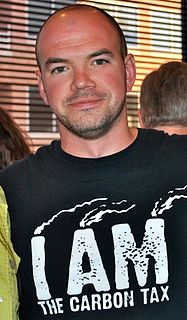A Quote by Terence McKenna
We are like coral animals embedded in a technological reef of extruded psychic objects...All our tool-making implies our belief in an ultimate tool.
Related Quotes
But technology is the real skin of our species. Humanity, correctly seen in the context of the last five hundred years, is an extruder of technological material. We take in matter that has a low degree of organization; we put it through mental filters, and we extrude jewelry, gospels, space shuttles. This is what we do. We are like coral animals embedded in a technological reef of extruded psychic objects. All our tool making implies our belief in an ultimate tool. That tool is the flying saucer, or the soul, exteriorized in three-dimensional space.
A most important, but also most elusive, aspect of any tool is its influence on the habits of those who train themselves in its use. If the tool is a programming language this influence is, whether we like it or not, an influence on our thinking habits.... A programming language is a tool that has profound influence on our thinking habits.
In a sense, every tool is a machine--the hammer, the ax, and the chisel. And every machine is a tool. The real distinction is between one man using a tool with his hands and producing an object that shows at every stage the direction of his will and the impression of his personality; and a machine which is producing, without the intervention of a particular man, objects of a uniformity and precision that show no individual variation and have no personal charm. The problem is to decide whether the objects of machine production can possess the essential qualities of art.
Attention is the most powerful tool of the human spirit. We can enhance or augment our attention with practices like meditation and exercise, diffuse it with technologies like email and Blackberries, or alter it with pharmaceuticals. In the end, though, we are fully responsible for how we choose to use this extraordinary tool.



































